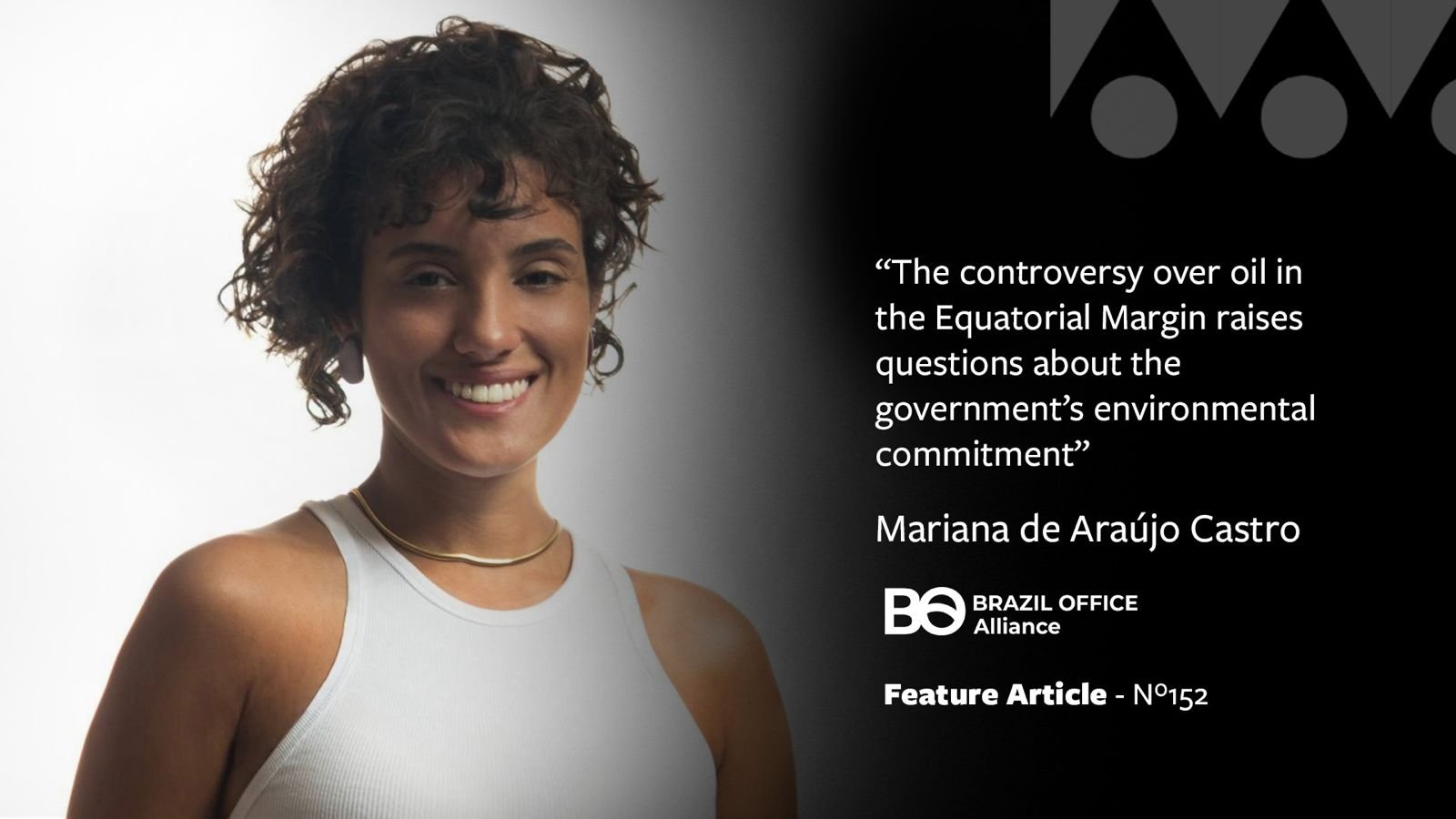Brazil at a Crossroads: Oil Exploration on the Equatorial Margin Tests Climate Commitments
By Mariana de Araújo Castro*
In June 2023, the Brazilian Institute of the Environment and Renewable Natural Resources (IBAMA) denied Petrobras a license to explore for oil in the Foz do Amazonas basin, in what was perhaps the first internal political conflict of the Lula III government between a vision that opposes economic development to the environment and another that seeks to align public policies with the climate emergency. In the last decade, the climate crisis has become an indisputable issue, with increasing mobilization of governments and organizations. In recent speeches, Lula highlighted the responsibility of the Global North and the need to implement climate agreements. On the domestic front, the government launched the "Ecological Transformation Plan" within the new Growth Acceleration Program (PAC), suggesting a more responsible stance in this area.
However, the controversy over oil in the Equatorial Margin has raised questions about the government’s environmental commitment, reflecting the challenge of balancing economic development and reducing inequality with a more vigorous approach to climate change. The Equatorial Margin, which stretches from Rio Grande do Norte to Amapá, is home to 65 oil exploration blocks that have been granted to companies but are not yet producing. This exploration poses high environmental risks due to the strength of ocean currents and the lack of comprehensive studies on the environmental risks of this type of activity in the region. One example of this was the failure of a Petrobras drilling project in 2011, which had to be abandoned.
The Foz do Amazonas basin stands out for its rich marine biodiversity and carbon capture capacity, and plays a crucial role in climate mitigation. Currently, around 41 blocks in the Equatorial Margin have been granted, but 20 are on hold due to licensing issues. The National Petroleum Agency (ANP) still has another 81 blocks in "permanent offer" and is considering granting another 382, pending environmental analyses and the Environmental Assessment of Sedimentary Areas (AAAS). This assessment is defended by IBAMA and the Ministry of the Environment as essential to ensure a safer and more sustainable licensing process.
Oil exploration in this region also faces international challenges. Neighboring nations French Guiana and Suriname have already advanced exploration, which increases pressure on Brazil. Companies, such as Petrobras and Shell, are leading the concessions, arguing that exploration is crucial for national energy security, especially given the expected decline in production in the Pre-Salt after 2030.
IBAMA's refusal generated mixed reactions from the government. On the one hand, Petrobras and its allies argue that exploration would boost economic development in the North and Northeast regions, generating jobs and revenue to finance the energy transition. The then-president of Petrobras, Jean Paul Prates, emphasized that drilling would be "the least offensive" and necessary to structure an economy that preserves the forest. On the other hand, the Minister of the Environment, Marina Silva, is firmly opposed to the expansion of the use of fossil fuels, defending the prioritization of sustainable alternatives. Her stance faced public resistance, including from the Minister of Mines and Energy, Alexandre Silveira, who classified IBAMA's decision as "inadmissible" and treated the case as a bureaucratic issue. His strategy included appealing to the Attorney General's Office (AGU) to contest IBAMA's decision, emphasizing national sovereignty and the strategic nature of exploration.
However, IBAMA's decision is supported by scientific and environmental concerns. In addition to the risks of leaks and irreparable damage to biodiversity, there are questions about the economic viability of exploration in the Equatorial Margin.
Experts point out that prioritizing fossil fuels contradicts Brazil's international climate commitments and ignores the urgency of reducing carbon emissions.
In June 2024, Lula publicly expressed his support for oil exploration, stating that "we cannot give up a source of wealth." This statement generated widespread repercussions, especially among environmentalists and social movements, who criticized the government for prioritizing economic interests over Brazil's climate goals. On the same day, the ANP announced the inclusion of new blocks for oil exploration in Roraima. This decision was interpreted by critical sectors as a move that contradicted the president's climate commitments.
The outcome of these conflicts will be a crucial indicator of the direction the government will take in relation to environmental and climate governance, as well as its commitment to a livable future. All of these discussions will become even more relevant in 2025, when Brazil will host COP-30, with several civil society movements and institutions already organizing to pressure the government for more forceful political action, and also because the current licenses for oil exploration in the Equatorial Margin expire in June of this year. The government's environmental department continues to defend the exclusion of these and other areas, while the ANP intends to renew them.
Brazil finds itself at a decisive moment, in which the choices made will reverberate for decades. While promises of a sustainable future are reiterated in official speeches, these events highlight the contradictions of a policy that tries to reconcile economic growth and environmental preservation. The case of the Equatorial Margin adds to other challenges faced by the Lula government in its attempt to balance internal forces in a context of climate change.
*Mariana de Araújo Castro is a PhD candidate in Political Science at IESP-UERJ, a researcher at the Interdisciplinary Observatory of Climate Change and the Laboratory of Global Political Analysis at the same university; and an associate researcher at ABO (Aliança Brazil Office).
This article was written for issue 152 of the WBO newsletter, dated January 31, 2025. To subscribe and receive free weekly news and analysis like this, simply enter your email in the field provided.


